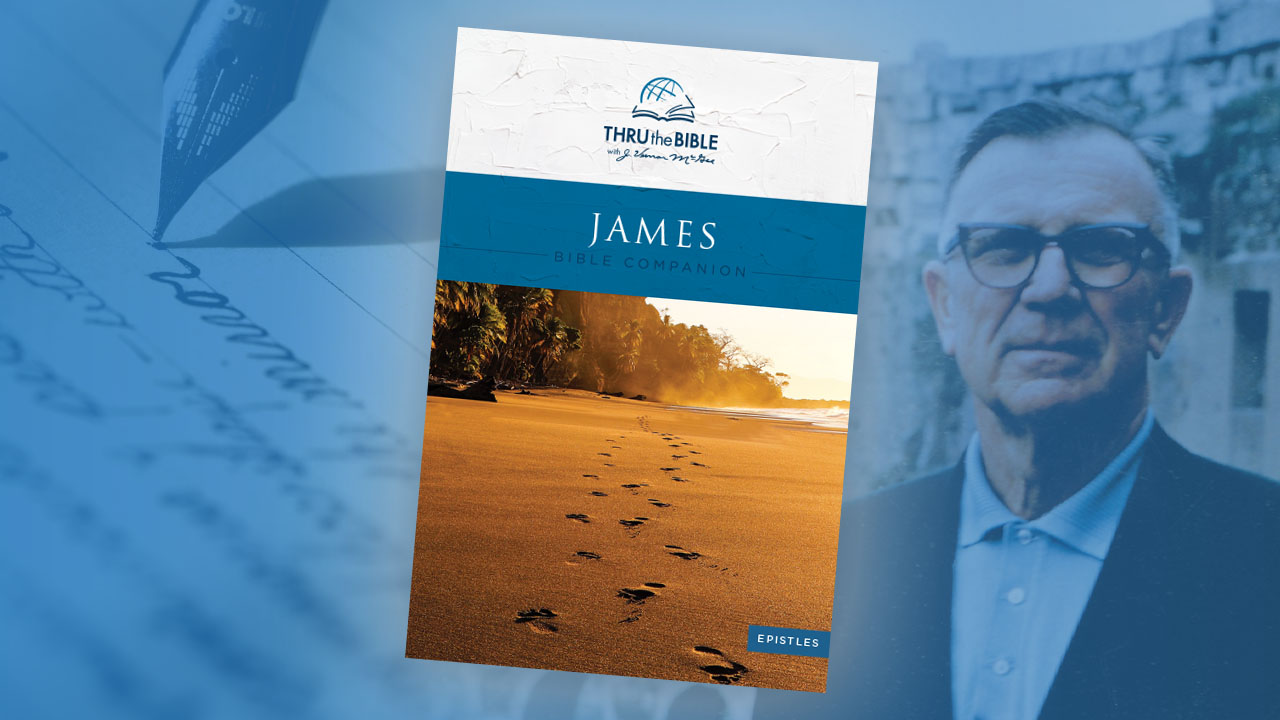Thru the Bible—JamesSample

Rich Man, Poor Man

Before you start todays devotional, ask the Lord to use it to grow you up in grace and in the knowledge of our Lord and Savior Jesus Christ.

Being rich isn’t the problem. But neither does being poor make you more godly. James says the lesson isn’t in the coin; it’s the heart.
In the Roman world of James’ day, there was no middle class. There were only the filthy rich and the filthy poor. Most of the Christians came from the very poor and slave classes.
James now addresses our wrong relationship to money, how we get it, and what we do with it after we’ve got it. The Lord Jesus Christ had a great deal to say about money. He taught three parables which helped illustrate James’ point.
Jesus tells the story of the poor man, Lazarus the beggar, who sat at the rich man’s gate and what happened when they both died. In another parable, the Lord Jesus told about a rich man who hoarded his money, built big barns, and never thought about eternity. The Lord called him a fool. In Jesus’ third parable, the unjust steward teaches us that God holds us responsible for how we make money and spend it.
When James talks about money, he warns the rich to see money properly—a lesson appropriate for every generation. “Don’t you know that your silver and gold are going to rust?” Why? Because we are going to rust out, too. Death separates a rich man from his money. God gave us wealth to be dispersed, not hoarded.
Throughout Scripture, we are taught we should live in the light of the coming of Christ. James tells us to get our affairs straightened out before He comes because if we don’t, He will.
Next, James says our prayer life with God should have great passion and enthusiasm. James was a great man of prayer, even nicknamed “Old Camel Knees.”
“What do you do when someone is sick among you?” Always practical, James says, “Get some medicine, then get people to pray.” The prayer of faith will save the one who is sick, and the Lord will raise him up. And if he has committed sins, he will be forgiven.
We are to confess our sins to God and our faults to each other. If you have injured someone, you should confess that to them. But confess your sins only to the Lord (see 1 John 1:9). Man cannot forgive sins; neither can any clergyman forgive sins—only God can do that.
But the prayer of a person living right with God is powerful. Another great man of prayer, Elijah, wasn’t a superhero; he was just like us, but he prayed passionately, and God answered him.
Then as a closing thought, James asked them if they knew an unsaved person who had not yet come to the truth. Don’t write them off. Go after them. It doesn’t matter if they’re blatant, obvious sinners. When he comes to a saving knowledge of Christ, their sins—though they are great—will be covered by the blood of Christ. The wonder of justification by faith is that once God has pardoned our sins, they are gone forever—removed from us as far as the east is from the west.
This is a wonderful conclusion for this very practical Epistle of James.

1. If God intends for money to be used as a tool, not hoarded, what are some specific ways you can use your money for the kingdom of God?
2. How can our use of money show our level of spiritual maturity and priorities?
3. Many times, it is easier to confess our sins to God than those we have sinned against. Why is that, and is there anyone to whom you need to confess?
Additional Resources
Listen to Dr. J. Vernon McGee’s complete teachings on James 5:1-6 and James 5:5-20.
For a deeper study of James, download the James Bible Companion for free!

Scripture
About this Plan

The book of James nudges us to “put your money where your mouth is” when it comes to Christianity. If we truly believe God, then that faith will produce godly actions. James offers real-life examples of what faith looks like. Favorite teacher Dr. J. Vernon McGee walks us through the practical, wise instructions found in the wisdom book of the New Testament.
More
We would like to thank Thru the Bible for providing this plan. For more information, please visit: http://ttb.org
Related Plans

A Practical Guide for Transformative Growth Part 3

"An INVITATION to FOLLOW : A 5-Day Journey Into Discipleship"

Living Above Labels

Healing Family Relationships Through Boundaries

Close Enough to Change: Experiencing the Transformative Power of Jesus

Small Yes, Big Miracles: What the Story of the World's Most Downloaded Bible App Teaches Us

The Greatest of Joys

It Is Well

What Is the Fear of the Lord?
